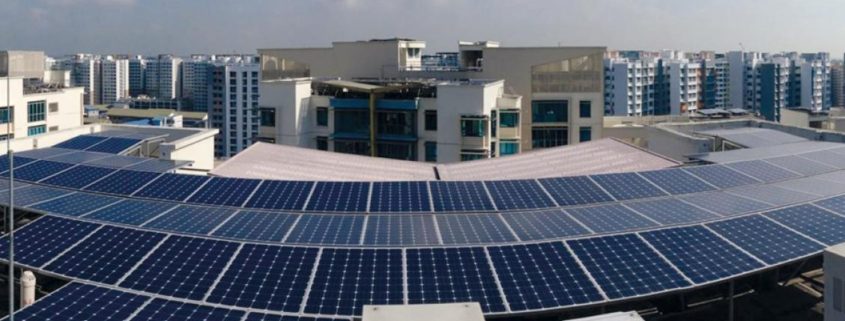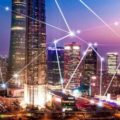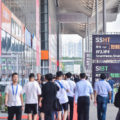Sunseap sets goals for sustainability innovation and social impact
Sunseap Group Pte Ltd (Sunseap), Singapore’s leading provider of
renewable energy solutions, has set sustainability goals and targets focused on reducing the environmental impact of its operations, driving clean-energy innovation and enhancing the livelihoods of local communities in which it operates.
The areas of focus – broadly grouped under Sustainability, Innovation and Social Impact, will be included in the company’s first Sustainability Goals and Targets Report, set to be released in the second half of next year. The goals are in line with those set out in the United Nations
Sustainable Development Goals for 2030.
Mr Rob Khoo, Sunseap’s Vice President of Marketing and Communications, said: “We are in the business of helping other businesses operate in a sustainable manner through using renewable energy and other decarbonisation initiatives. It is equally important that that we run
our businesses in a way that does not compromise the future of our planet and our stakeholders.
“By decarbonising our operations, investing in technological innovations and doing our part to improve local communities, we believe we will be both socially responsible and sustainable.”
Sustainability
Sunseap is targeting a 25% decline in energy intensity per capita as well as greenhouse gas emissions intensity by 2025 from 2019 levels among its sustainability goals.
The company will keep track of these targets and make changes to our operations along the way to achieve them, such as adjusting the energy consumed on all Sunseap-related premises and educating staff on the need to do so. For greenhouse gases, it will also take into account emissions due to air travel, which are typically excluded from the standard scope used by
many companies for carbon disclosures.
In addition, Sunseap is aiming for a 90% recycling rate for raw materials used in photovoltaic modules and inverters. It will work with manufacturers and recycling vendors to break down components and use them for other purposes.
Innovation
The company will work with suppliers to adopt technologies and innovations toward a carbon-neutral supply chain. It will place greater emphasis on sustainability in product design and monitoring of research and development investments in its supply chain.
Sunseap also intends to increase its capacity of renewable energy credits and be involved in changes to policies and regulations in different markets.
Social Impact
Sunseap is committed to upholding responsible business ethics and principles and is targeting zero incidents of corruption. It will also promote health and safety with a zero-fatality rate.
It will screen 100% of its primary supply chain suppliers (including suppliers of photovoltaic panels, inverters and solar technology) against its social and environmental criteria (for example, its Supplier Procurement Principles/Policies) by 2025.
It also plans to guide all its suppliers to have policies and measures in place that are aligned with its sustainability principles by 2030.
In April, Sunseap released its first impact report showing that solar energy generated by the company for clients resulted in 58,000 tonnes less of greenhouse gas emissions in 2019. It is among the first private companies in Singapore to embark on this voluntary exercise of reporting its sustainability impact.
In Singapore, Sunseap generates solar energy for corporate, government and retail clients from photovoltaic systems installed on rooftops. To date, its solar systems are atop more than 1,500 apartments, commercial and industrial buildings.
The company also provides residential customers in Singapore with access to certified solar energy through the open electricity market to help reduce their carbon footprint.
Outside Singapore, Sunseap has a total and projected capacity of 1.7 GigaWatt-peak of solar energy projects in the Asia-Pacific region that are in operation, under construction and in development.




